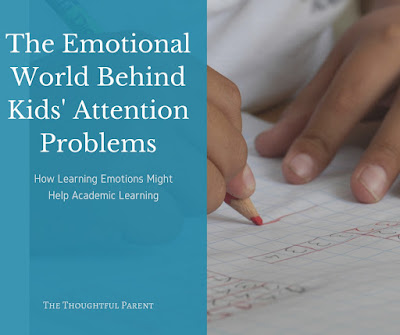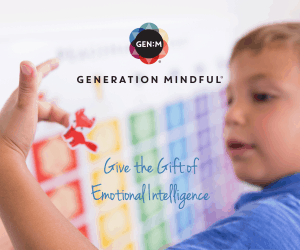{As attention problems become more common in kids, researchers continue to understand this issue. New research points out the importance of soft skills for students who struggle with attention}
I went to a presentation last week at my son’s school about the social-emotional learning (SEL) program they use. I knew these “soft skills” for students were an important piece of the educational program, but the power of it didn’t really hit me until one of the administrators said in passing that behavioral problems at schools that have these programs are dramatically less than at those that don’t.
Of course they are, I thought. Kids aren’t little robots who just show up to learn and don’t feel emotions or have disagreements with their friends.
Research on “Soft Skills” in Education
Instead of starting the day straight away with reading and writing, the teachers take a few minutes to “check in” with each of the kids in their group. The kids have a moment to discuss if they are in the “green zone” (happy), “yellow zone” (marginal) or “red zone” (upset or sad). The school counselor also visits from time to time to discuss with the kids strategies they can use to get back to the “green zone” after getting upset or sad.

The administrators also pointed out (and much research backs this up), that schools that include a component to foster “soft skills” for students fair better academically. Why is this you might ask? New research gives us a clue…
As adults, we sometimes get absorbed in our own thoughts at times and cannot focus on a task we are trying to do. Have you ever considered what is going on when this happens? Well, for adults, it often has to do with a problem or personal situation we are trying to figure out in our heads. Maybe we just had a fight with our spouse or maybe we just found out one of our friends is sick. New research is showing that for children too, they may be trying to figure out emotional situations when they seem distracted or inattentive.
Why “Soft Skills” are Important for Students?
This new research is based on a fascinating study of kindergarten-aged children in Germany. The researchers assessed the children’s “emotional knowledge” over the course of 14 months. Emotional knowledge involves the ability of people to identify other’s emotions (often based on facial expressions) and the situations that prompt those emotions. The assessment given to the children also tested their ability to control their own emotional expressions.
In addition to these soft skill factors, the researchers also assessed the children’s language skills, self-regulation skills, and memory.
You may also enjoy: Social-Emotional Development: The Ultimate Guide for Parents
What the research shows is that there may be a link between emotional knowledge and kids’ ability to pay attention. Kids in the study who showed better emotional knowledge had fewer attention problems, even after other relevant factors (e.g., demographic factors or language ability) were considered.
So what is really going on here? Why is understanding emotions helpful for kids’ ability to pay attention? The authors believe that the more children understand other’s emotions, then other people’s emotions and reactions become more predictable. Thus, children know what to expect from other people, how to manage their own reactions and can focus on other things.

This not only leads to more positive social interactions, but it frees up their brain to focus on academic subjects. In other words, kids get distracted and seem inattentive when they are using valuable brain space trying to figure out why people are expressing the emotions they are facing and how to manage that.
How Soft Skills Link to Attention and Focus
The researchers believe this work may have implications for understanding ADHD. Developmentalists has long-suspected that the root of ADHD has to do with children’s lack of executive function skills. These skills include things like working memory, self-control, and mental flexibility. In this study, however, the authors found that emotional knowledge was at least as important or perhaps more important to attention skills than executive function. Yes, that’s right–emotional knowledge was that important.
Wow! In the world of child development research, this is pretty important stuff. For years we have understood the role that executive function plays in the development of children’s attention and overall positive growth. Now we are also seeing the crucial role that emotional knowledge plays. Noted emotional knowledge researcher Daniel Goleman puts it this way,
Okay, now that we know the importance of emotional knowledge, how can we as parents help our children gain these skills? Well, one thing we know from research is that parents who talk to their children more about what other people might be feeling or thinking, helps kids develop emotional knowledge and the ability to understand the perspective of others.
So, it’s really not that complicated–just talk to your children often about other’s feelings. Developmentally, kids will not really be able to understand others’ thoughts until they are between 3 and 4 years of age. This is the age when “theory of mind” develops. However, as kids grow they gain valuable skills in empathy and emotional learning through simple exercises like this.
Related Resources:
von Salisch, M., Haenel, M., & Denham, S. (2015). Self-Regulation, Language Skills, and Emotion Knowledge in Young Children From Northern Germany Early Education and Development, 26 (5-6), 792-806 DOI: 10.1080/10409289.2015.994465




 Emotional Learning Tools
Emotional Learning Tools



Leave a Reply